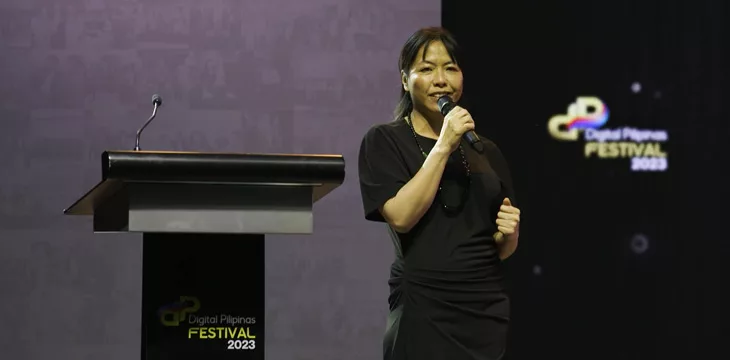|
Getting your Trinity Audio player ready...
|
While digitalization is a step toward innovation, the transition also comes with risks. nChain Chief Information Officer Christine Leong stressed this at the Digital Pilipinas Festival 2023, giving pointers on how the Philippines could bolster its cybersecurity as it gradually transitions into a fully digitalized country.
Citing recent data from Cisco, Leong said the Philippines is ranked fourth most attacked country by cybercriminals, registering a 433% jump in cyberattacks in the last two years.
“For Philippines to grow as a country, digitally…it is very, very important to have security,” she noted during her speech at the Digital Pilipinas Festival.
Leong said investing in security is a costly undertaking and will require a pool of talent well-versed in cybersecurity, problems often faced by countries in Asia, including the Philippines.
With the Philippines’ network vulnerability, 81% of experts have said cyberattacks are imminent, and it is only a matter of time to get the whole country to prepare for such disruptive threats.
“We all need to prepare for it,” Leong said. “In a digital future together, in digital government, in digital banking, in a digital world, we need better security, and with better security, that will lead to greater investments, greater usage, greater adoption of the digital economy, and the benefits of the digital economy can then really come.”
She noted that the presence and mass adoption of emerging technologies, such as artificial intelligence (AI), would mean nothing if countries refused to recognize the importance of building their cybersecurity.
Developing cybersecurity should also go hand-in-hand with crafting the right regulations and procedures to ensure that data are being heavily protected, including information that the community chooses to share publicly.
“Security is not just for protecting, using tools; it’s not just a technical thing—it’s also human,” the nChain’s CIO noted. “Better security enables better access control.”
With this, she doubles down on the importance of blockchain adoption, emphasizing its unique cryptography to keep information secure.
“Blockchain is very, very secure,” Leong said. “Building enterprise applications, use cases on top of blockchain is far more secure than what it is today.”
Currently, many are still on the edge about adopting blockchain, much like how the world was adamant about using cloud services when it was first introduced to the market. It only takes one enterprise or entity to demonstrate how easy and secure blockchain is to help people trust the technology.
Leong reiterated the importance of partnering blockchain with the right policies, noting that regulations come as an added layer of security to the immutable ledger.
“Using this emerging technologies, you also need to think about what policies do you need to change to enable your next generation Web3 technology to be secure…so everybody could trust it and use it,” she explained.
It is also equally important to design blockchain-based applications in a way that they are easy to understand and use.
“You need to think about security making it easier, and in general, in the future of Web3 and digital economy, security is gonna be something that’s gonna be critically important for the adoption and trust,” Leong concluded.
Watch: SEC’s criteria for blockchain? Credibility & track record

 07-04-2025
07-04-2025 





